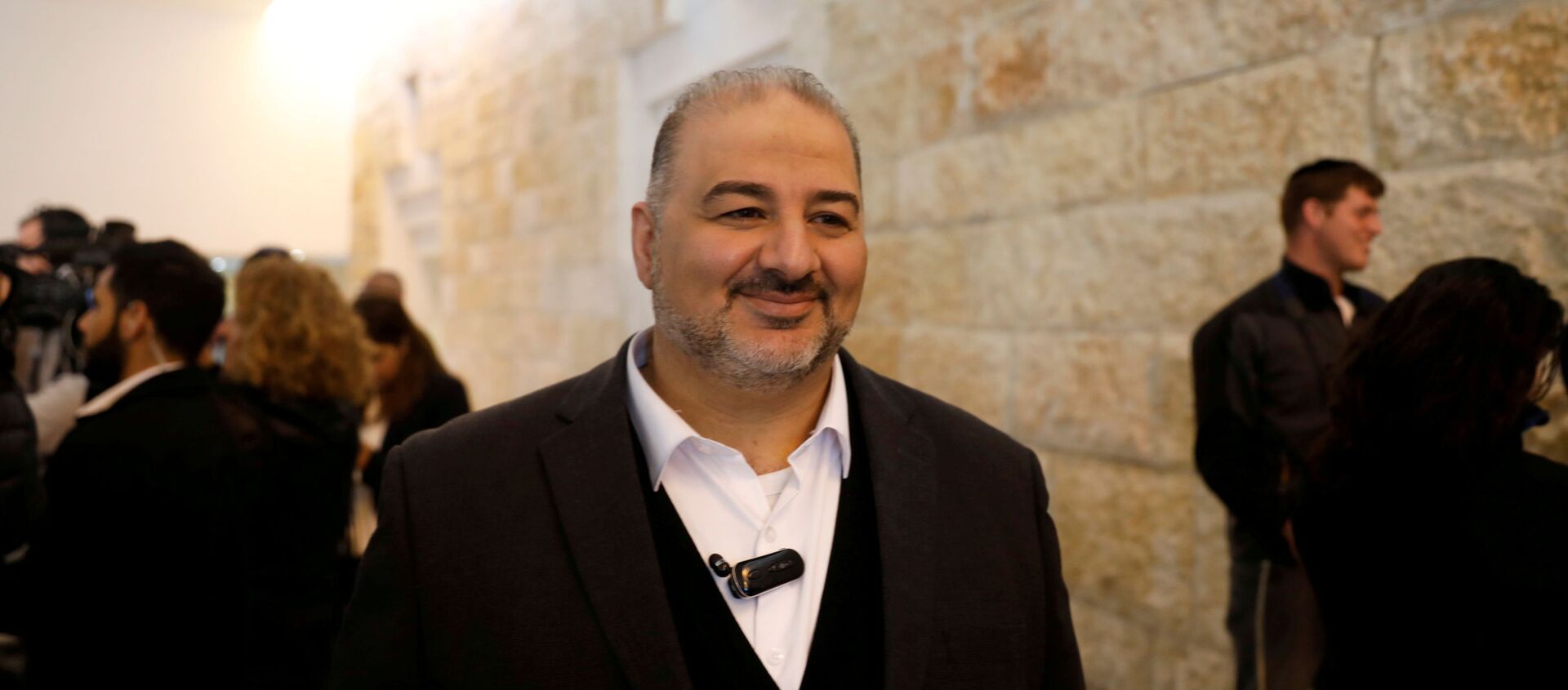Israeli Prime Minister Benjamin Netanyahu has lost control of the Knesset. On Monday his opponents succeeded in passing a proposal to gain control over the Knesset Arrangements Committee, which is running parliament until a government is formed.
This was made possible thanks to the support of Raam, an Islamic party that Netanyahu was counting on for the creation of his coalition. But despite their U-turn on Netanyahu, the PM still hopes to forge alliances that will keep him in office.
With only two weeks left until his mandate to form a coalition expires, the Israeli PM is still exploring a route in which Raam could forge ties to his government.
But his attempts to do so are not being taken lightly by some members of his potential coalition. Batzalel Smotrich, who heads the Religious Zionist Party, has become one of the main voices that oppose the collaboration with Raam; he slams its members as terrorist supporters.
קומץ הטפשים בימין שמנסה לשכנע אותנו שעבאס החדש זנח את המאבק הלאומי ומתמקד רק במישור האזרחי. כמה תמימים אתם צריכים להיות כדי לקנות את הבלוף הזה?! לידיעתכם, הראיון הזה הוא מהבחירות האחרונות. אתם בסך הכל אידיוטים שימושיים ב"ג'יהאד האזרחי" של התנועה האסלמית. המשך הסרטון בציוץ הבא.>>> pic.twitter.com/CbLsotS3qi
— בצלאל סמוטריץ' (@bezalelsm) April 17, 2021
Smotrich is not the only one. His objections sit well with many conservative voters, who don't want to see Netanyahu forming a government with Abbas.
Arabs As Legitimate Partners?
But for many others, including those, who have voted for the PM, Netanyahu's attempt to engage an Islamic party is totally legitimate.
According to a recent poll, released by the Israel Democracy Institute, 34 percent of those who consider themselves "right-wingers" said they would not object to a conservative government supported by Arab parties, as opposed to only ten percent who thought so in 2020.
Ofek Efargan, a 26-year-old Israeli from Kiryat Motzkin in northern Israel, says he is one of those, who would back such a coalition and claims he is not disappointed with the actions of the PM, who is attempting to reach that goal.
For him, Netanyahu's attempts to glue Raam and the religious parties together is "just a strategy" that aims at getting Israel out of its political crisis.
"We can certainly rely on Raam for one vote only -- that of establishing a government," he said, referring to a plan, according to which Netanyahu's government will comprise 59 members, all of which come from religious parties and Likud, whereas Raam will not enter that coalition, giving it an external support only.
"This way, we will finally finish the political impasse, put an end to the situation where elements of the government cannot agree on basics and finish the attempts of the opposition to establish their control over the parliament."
Arabs Better Than Opposition?
For a conservative voter like Efargan, an establishment of a conservative government is an absolute must, simply because such a coalition, if it ever emerges, would find it easier to promote laws that will sit well with the worldview of its voters.
Such would be the case with the issue of Jewish settlements in the West Bank, whose construction will probably see a boost under the conservatives. And such would be the case with laws that would target the judiciary system, considered by right-wing circles as far too liberal.
To start off, it will crack Israel's conservative circles, something that's happening already with a number of hawkish politicians expressing their dissatisfaction with Netanyahu's efforts to include the Islamic party.
And, secondly, it will provide legitimacy to Arab parties that so far have been mainly occupied the benches of the opposition, having little impact on Israel's politics, economy and security.
"If Netanyahu, one of Israel's hawks, ends up forming a coalition with Raam, the opposition will interpret it as a green light for them to do exactly the same. And that means that in the future we will see left-wing governments that will include Arab parties."
This is something Efargan would like to avoid. For him, a liberal government is much worse than a right-wing coalition backed by Raam. Liberals, he believes, would put an end to the ‘Jewishness’ of Israel, they would turn a blind eye to the actions of elements that threaten the country, they will stand weak in front of Arab parties and they would fail to oppose global powers that are oftentimes hostile to the Jewish state.
It is because of fear for liberals that Efargan believes Netanyahu should exert maximum efforts towards the establishment of a coalition, even if that means relying on Raam for just one vote.
"I doubt Netanyahu will rely on them for anything else than one vote. He will not give them ministerial posts and the maximum they can count on is to chair a Knesset committee. In the past, such a scenario would have been unacceptable for me. But today, we might not have a choice".





